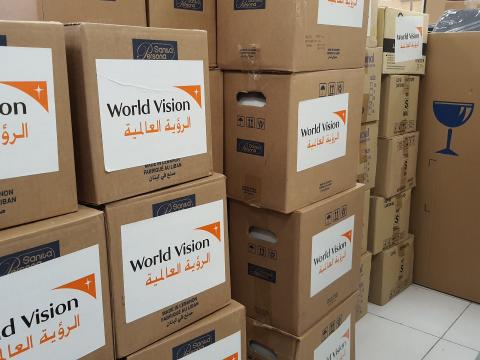Supporting Bouar Hospital

On the 21st of February 2020, the first recorded Covid-19 case was confirmed in Lebanon, more than a full year passed since then, lockdowns and social guidelines were implemented in hope to curb the spread of the virus, and only when the Lebanese population started to believe that the coronavirus crisis was under control, the devastating explosion at the port of Beirut in the 4th of August changed the whole scene, leaving many hospitals completely destroyed and the rest already working at the limits of their capacity, and since then, the virus started vastly spreading again in an uncontrollable manner, as the country entered a very dangerous phase with daily cases exceeding 5,000 in the first week of January 2021, hospitals sounded the alarm, warning that they might be forced to turn away patients due to a lack of vacant beds and overwhelmed human resources. Nevertheless, this crisis came at an extraordinary difficult time economically and socially, and Lebanon had specific challenges preparing for the emerging pandemic since it is also mired in an unprecedented economic crisis amid a political and economic turmoil that began in October 2019.
World Vision in Lebanon anticipated the growing challenges, by supporting the Bouar governmental hospital in the rehabilitation of the water treatment system as part of an earlier emergency intervention. “We would not have been able to establish a department to treat the Coronavirus patients without the Water Treatment System Rehabilitation project, It was a priority and an essential project” said Dr. Andre Kozaily, the director of Bouar governmental hospital in Kesrouane, a 30-minute drive away from the capital, Beirut.
The project aimed to support the repair and rehabilitation of water supply as well to re-establish the operating, maintenance, and development of water supplies in an appropriate and sustainable manner for all the hospital’s departments, as a study carried out by the hospital’s management showed that the water in the operation rooms and in the intensive care units does not meet the health safety standards.
By the end of February 2021, the Bouar governmental hospital equipped 12 intensive care units and treated approximately 680 Coronavirus patients. In addition, they completed more than 42,285 PCR tests, and 3564 vaccine shots. However the challenges were many and overwhelming due to many factors according to Dr. Kozaily “the untrained personnel and the fears of infection among nursing staff on one hand, the economic crisis and the prices that has been on a rise which led to the shortage of personnel, beds, and medical supplies, including personal protective equipment on the other hand.”
In the mid of March, World Vision in Lebanon provided the Bouar governmental hospital with protective equipment as part of the commitment in preventing and containing transmissions of the virus and as a response to Covid-19 in Lebanon. “We only count on donations to continue our fight against Covid-19 or else we would close our doors, as we do not have any other resources due to the economic crisis” Said Dr. Kozaily . “All the Covid-19 patients are vulnerable as they are suffering equally from this virus” He added. The hospital has been welcoming the Covid-19 patients from all different backgrounds including the most vulnerable communities as the hospitalization bill is considerably very low and almost symbolic, especially compared to a private hospital’s bill.
Covid-19 affected Lebanon deeply, as the deaths are surging, and people continue to say goodbye to their loved ones. The Lebanese hospitals and health-care workers have been exceptionally heroic throughout all this, as they are fighting on the frontlines to safeguard the lives of everyone affected whilst facing an extremely limited capacity to respond, only donations are assisting them at this phase in containing the spread of the virus and helping the vulnerable communities and families.